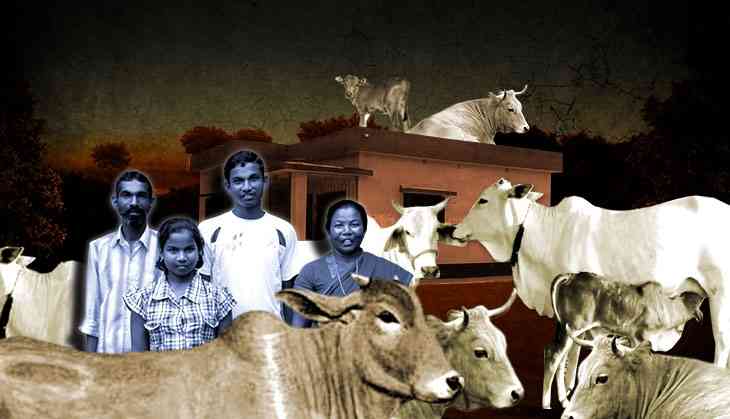Cattle can no longer be sold for slaughter: new law will destroy small farmers

In accounting, an 'asset' is something owned by you, which can provide future economic benefits. On the other hand, a 'liability' is an obligation, either in the form of money or services that must be performed in future.
Now imagine, with one stroke of its pen, the government turns all your assets into liabilities. How would you react?
The Narendra Modi government has turned farmers' biggest assets – livestock – into liabilities overnight.
The new rules, notified by the Environment Ministry, ban the sale of all kinds of cattle for slaughter at animal markets across the country.
If the terror of cow vigilantes was not enough to discourage farmers from having cattle stocks as a means of additional income, the new rules require the purchaser to provide an undertaking that animals are being bought for agricultural purposes, not slaughter.
The irony
It's ironic, really. A government that boasts of cutting through the red tape to help improve India's rank in ease of doing business is adding a large amount of paperwork for farmers trading in cattle.
Now, a seller of cattle will have to make five copies of proof of sale, and submit them at the local revenue office, the local veterinary doctor in the district of the purchaser and the animal market committee, apart from one copy each for the seller and the buyer.
According to The Hindustan Times, the regulation will cover cows, bulls, bullocks, buffaloes, steers, heifers, and camels.
Inspector Raj: bad for business, good for farmers?
Talk to any industrialist and he will tell you how draconian the pre-1990s 'Inspector Raj' was.
Notably, the Modi government is doing everything to make the dreaded 'inspector' redundant for businesses in the country; but not for farmers, who will now have to deal with a veterinary inspector, who will have the power to mark any animal 'unfit for sale'.
According to The Hindustan Times, “the annual meat business in India is estimated to be around Rs 1 lakh crore, with exports worth Rs 26,303 crore in 2016-17”.
This money is the lifeline of lakhs of farmers who depend on various chores, apart from growing crops for survival.
What about doubling farm incomes in five years?
Over 12,000 farmers committed suicide in 2014 and 2015.
When the issue rocked Parliament, the government, in 2016, set a target to double farmers' incomes by 2022.
While we do not know whether the doubling of income would be nominal or real, but the formula to achieve the target involved giving cheap credit to farmers. And in case of a crop failure, reducing stress through crop insurance.
Such a scheme is perfect for large land owners, who only depend on cash crops to earn a living. But in India, 65% of farm households have less than one hectare of land, which makes cattle farming an important part of a farmer's income.
According to the 19th livestock census in the country, the sector contributes nearly 25.6% of 'Value of Output' at current prices of total value of output in the agriculture, fishing & forestry sector. The overall contribution of the livestock sector in the total GDP was nearly 4.11% at current prices during 2012-13.
Destruction of farm economy
The new law makes it difficult for farmers to sell their livestock in the market.
In the past three years, the rise of the BJP across the country had unleashed cow vigilantes, who made life difficult for those farmers who possessed cows.
But by enacting a law that introduces 'Inspector Raj' and excessive paperwork for those earning their livelihood through other animals as well, the establishment will ensure destruction of the farm economy.
First published: 26 May 2017, 22:18 IST

